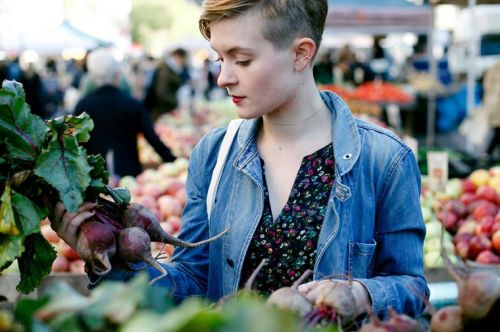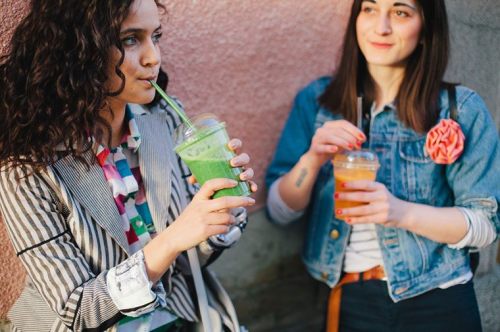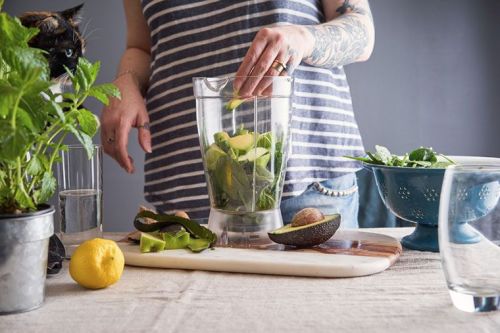Our editors independently select these products. Making a purchase through our links may earn Well+Good a commission
If you’ve been thinking about sugar—specifically whether you should or shouldn’t eat it, how much, and what types are good for you—this post from brain health pro and psychiatrist Drew Ramsey, MD, will give you plenty of food for thought. Read on to see what the Well+Good Council member wishes everyone knew about the sweet stuff. And trust: He’s not sugarcoating anything.
Sugar: It’s loved. Feared. Blamed. But most of all, misunderstood. So let’s set the record straight: I’m a physician who specializes in brain health, and I think sugar is a miracle.
It’s the singular molecule on which all life on Earth depends, the beginning of the energy in our food supply—what leaves make from sunlight via photosynthesis. Sugar is vital for your brain health—which is the biggest guzzler of the sweet stuff in your body, FYI.
Yep, your greatest assets: grit, gifts, creativity…all run on it. That’s why the organ’s such a great one to study in order to better understand the molecule. Your noodle slurps up over 400 calories a day of pure glucose. Low blood sugar (AKA hangry) is your brain freaking out—as your blood sugar level falls, it hits the panic button. Those 400 cals aren’t optional. What you do have a choice over is where you source the sweet stuff from.
There’s a danger to your health—in particular to your brain health—by blanketing sugar as bad for you.
For example, your body can do little with fructose—mainly found in processed foods. So stick to the real deal: sugars found in nature—like from avocados. Oh yeah, avocados have a special seven-carbon sugar found in little else. Other natural sources include ripe fruit, maple syrup, and honey.
There’s a danger to your health—in particular to your brain health—by blanketing sugar as bad for you…remember what a similar notion of fat and cholesterol did for our collective health? Instead, it’s important to understand the sweet stuff—specifically, how to tame your brain’s natural affinity for it, and how to—gasp, dare I say—enjoy it.
Here are the 6 main things I encourage patients to remember about sugar.

1. Your brain needs it
The brain’s number-one desire is a constant supply of energy. Sugars and sweet foods—even no-calorie sweeteners—trigger insulin, which is the metabolic master switch that puts your body in fat-storage mode. Your brain thinks storing calories as fat is evolutionary brilliance (check out Gary Taubes’ books, like Why We Get Fat, for a deep dive). The key to keeping your brain healthy and your body mass index in an optimal range is avoiding too much insulin. For example, an apple elicits less of a blood sugar and insulin spike than apple juice because of the fiber in the whole fruit and the rate of intake i.e. chewing.

2. Eating simple sugars quickly makes you happy
This is because the rarest amino acid in our food is tryptophan. We make serotonin out of it, and eating these types of sweet foods increases its transport into the brain. This is one of many reasons we love it. Just stick to nutrient-dense sources such as whole fruits, fruit juice, and dairy products—as opposed to, say, raw or brown sugar, and high-fructose corn syrup. Of the 400 calories of glucose your brain burns per day, only a quarter of it should come from your daily sugar intake (which is a recommended 25 grams). The rest should be sourced from carbohydrates, ideally.

3. The key to consuming sugar is finding your sweet spot
What’s the main molecule in kale? Sugar. Fiber is made of sugar. It’s the backbone of your DNA. (And because your DNA is a miracle, sugar is, too.) The real, sugar-containing, whole foods we should eat are “slow-burning” because natural sweeteners come with fiber. It may be why high glycemic-index foods are associated with an increased risk of depression in women.

4. While sugar face is a thing, sugar addiction isn’t
Habit forming? Sure. Compelling? Yes. But the sugar addiction headlines you see come from a few rat studies. You brain isn’t a rat brain. Addiction is a serious illness. Sugar addiction is a set of bad habits. Health messaging that instills fear and demotivates you isn’t helpful.

5. Shift your brain fuel
Your brain doesn’t have to burn carbs and sugar. When you cut them out, it has a backup plan: Burn fat. Your noggin can run on ketones, which you make from the stored energy in fat during times of fasting or eating less than 60 grams of carbs per day.

6. Good bugs love sugar
Your microbiome, the billions of bacteria in your colon, is the new frontier of brain health. (Not a typo.) Next time you’re jonesing for a loaf of bread or a caramel sea salt gelato, listen very carefully to your colon: Bacteria dictates much about your eating behavior, anxiety, and mood. Eat simple sugars in processed foods and you cultivate an unhealthy population of bacteria that is less diverse and thrives on junk food…and it’s always hungry! Eat lots of rainbow plants, fermented foods, and legumes if you want to grow “good bugs,” a diverse population that keeps you healthy and happy.
 As a psychiatrist and farmer, Dr. Drew Ramsey specializes in exploring the connection between food and brain health (i.e. how eating a nutrient-rich diet can balance moods, sharpen brain function, and improve mental health). When he’s not out in his fields growing his beloved brassica—you can read all about his love affair with the superfood in his book 50 Shades of Kale—or treating patients through his private practice in New York City, Dr. Ramsey is an assistant clinical professor of psychiatry at Columbia University College of Physicians and Surgeons.
As a psychiatrist and farmer, Dr. Drew Ramsey specializes in exploring the connection between food and brain health (i.e. how eating a nutrient-rich diet can balance moods, sharpen brain function, and improve mental health). When he’s not out in his fields growing his beloved brassica—you can read all about his love affair with the superfood in his book 50 Shades of Kale—or treating patients through his private practice in New York City, Dr. Ramsey is an assistant clinical professor of psychiatry at Columbia University College of Physicians and Surgeons.
What should Drew write about next? Send your questions and suggestions to [email protected].
Food + Nutrition week is brought to you by siggi’s
Sign Up for Our Daily Newsletter
Get all the latest in wellness, trends, food, fitness, beauty, and more delivered right to your inbox.
Got it, you've been added to our email list.











